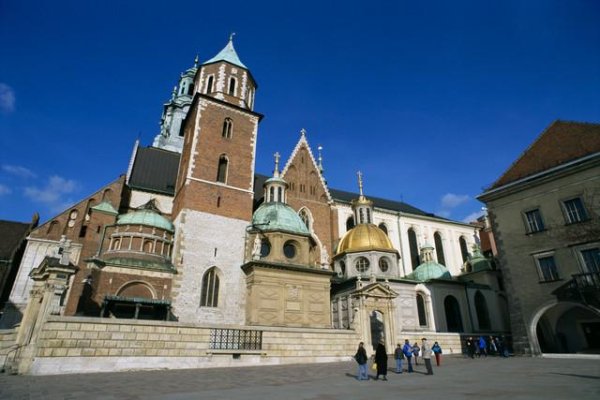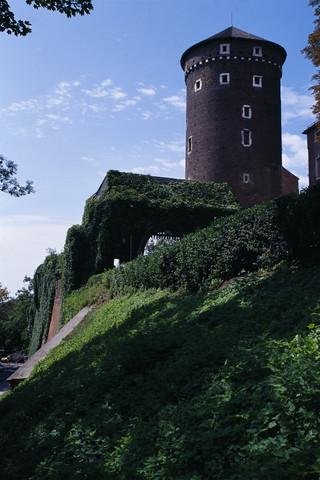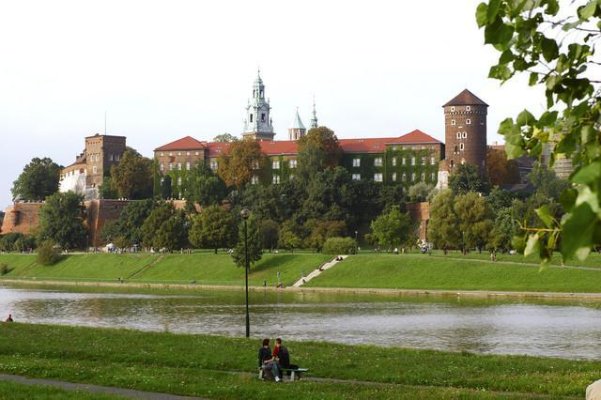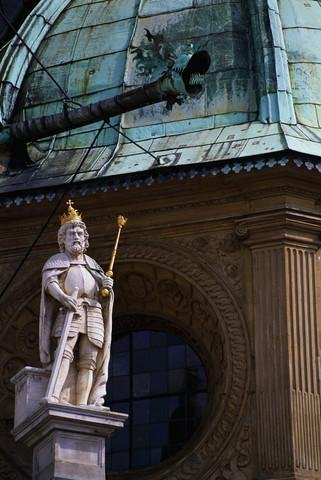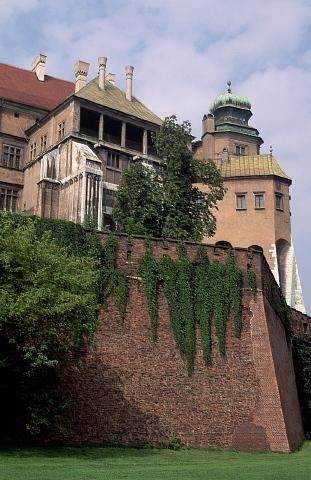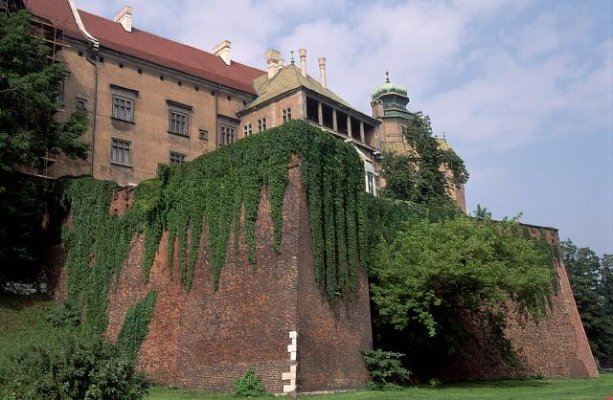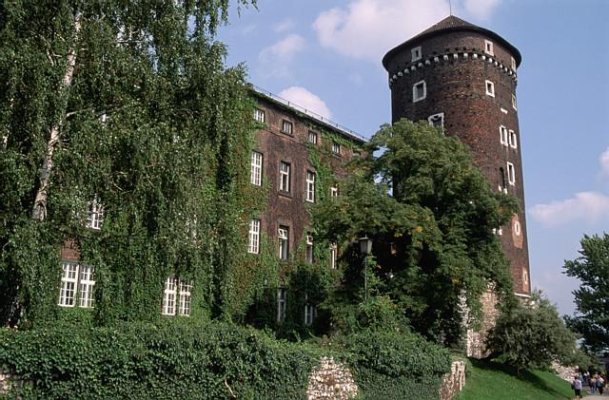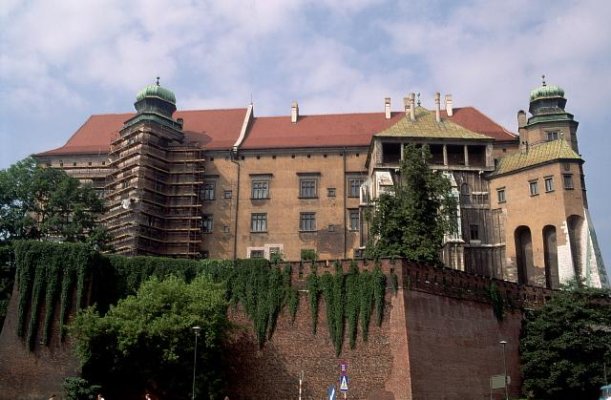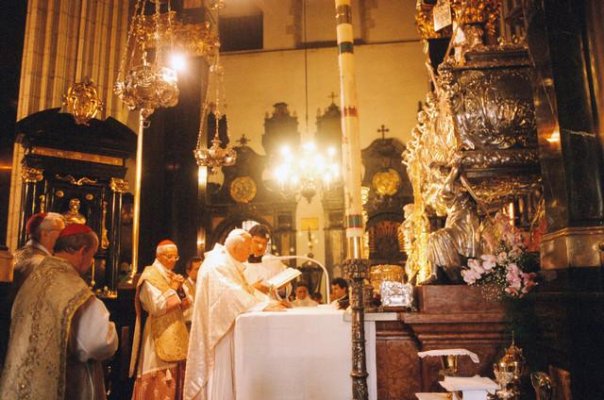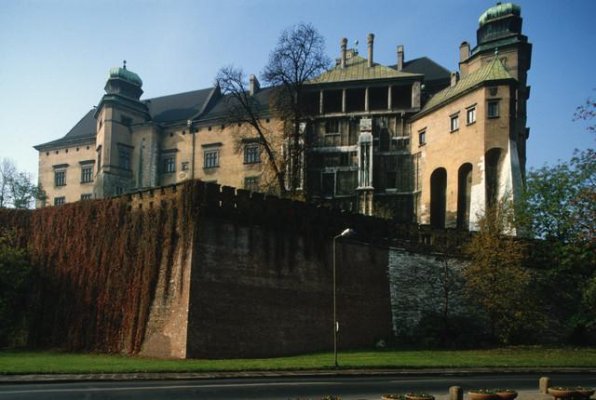Zamek Kliczków
A smaller, but very beautiful, zamek (castle)...
Zamek Kliczków in the dense forests of Lower Silesia, 12 km from Bolesławiec.
www.kliczkow.com.pl
The history of the castle is equally interesting as the history of the whole Silesia. Historical sources acknowledge the year 1297 as the year of erection of Kliczków castle. The castle, constructed by Bolko the Severe (Bolko I Surowy), the Prince of Świdnica and Jawor, was used as an earth and wooden border stronghold located on the high Kwisa bank.
In the 13th and 14th centuries Silesian principalities were losing their independence and the rights to strongholds were vested to knights families, who transferred them into castle and farm complexes.
The same happened to Kliczków stronghold, which became the property of a Saxon family of the Rechenbergs in 1391. Kliczków Wehrau estate remained their property for almost 300 years.
The most distinguished member of the family in terms of his merits for the castle was Kacper the Middle (ca. 1545 1588), who initiated the reconstruction of the castle into a Renaissance building, terminated by Kacper Junior, his son.
Kacper the Middle also funded an altar (1580) and a great wooden epitaph (1588) in the parish church of Saint Trinity in Kliczków. We know from a description coming from the 50s of the 17th century, preserved in the National Archive in Wrocław, that the palace was build of stone, it had two ballrooms (one of them on the first floor), 20 chambers, kitchen and chapel.
Kacper Junior built also the farm buildings (malt-house, brewery, stable, coachhouse). His strategic position (he had the titles of chamberlain and advisor on the Emperor's Court) may be well exemplified by a personal visit of Czech King Matthew to Kliczków in (1611).
The Thirty Years War brought about the change of the owner. In 1631, after a period of inheritance disputes, the property was taken over and the estate reconstructed by the von Schellendorf family and two generations later the lateral branch of the family, the von Frankenbergs. It was then, when the nature of southern façade was changed, interiors were modernised, Lions Gate was erected, baroque fountains were built on the courtyards and the character of the park was changed.
In 1747, the estate was purchased by the von Promnitz family, owners of landed estates in Pszczyna, Żary, Borowa and Nowogrodziec, and 20 years later Kliczków was taken over by count Hans Christian zu Solms-Baruth, who married the widowed countess von Promnitz.
Only the counts descendants started the bigger redevelopment of the castle. In 1810, the Ballroom received the Empire style decorations, and New Gothic Jenny Tower as well as mange were constructed. It was then, when the manorial farm buildings were moved outside the entrance gate.
In 1877, the estate was taken over upon a will by count Fryderyk Hermann Jan Jerzy zu Solms-Baruth. In 1881, upon his order, Berlin architects Henryk Kayser and Karol von Grossheim started a reconstruction of the estate that took four years to be finished. Tastes of that time made it possible for architects to get inspired by different styles: English gothic, Italian renaissance as well as German and French mannerism.
Visiting the estate, you will find these features on façades and in interiors, especially in the most beautiful Theatre Room. Eduard Petzold, creator of landscape parks widely known in Europe, designed an over eighty-hectare park in the English style.
In 1906, the Old Prince inherited the title of prince, he had the title of the highest Pallotine of the last emperor of Prussia, he was the chamberlain of imperial court and higher master of hunting. He was known as a devoted hunter, but also a protector of animals and specialist in horses. His son, count Fryderyk Hermann Christian Hans zu Solms-Baruth inherited his fathers property in 1920. Emperor Wilhelm II, his successor and the highest representatives of the court visited Kliczków several times taking part in hunting.
During the Second World War, after the unsuccessful attempt on Hitlers life, members of the family were arrested and the property was confiscated and taken away.
